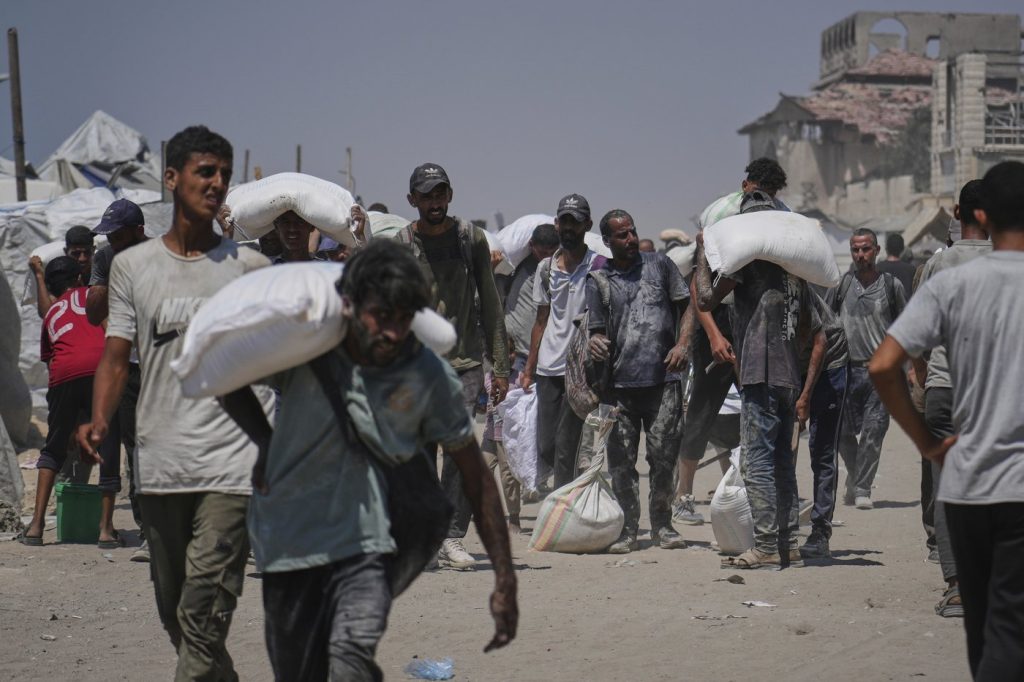The U.N. General Assembly is convening high-level officials this week in an effort to promote a two-state solution to the long-standing Israel-Palestinian conflict, envisioning peaceful independent nations for both peoples. The two-day meeting, commencing on Monday, is being co-chaired by the foreign ministers of France and Saudi Arabia. Notably, Israel and its strong ally, the United States, are boycotting the gathering, labeling it as “counterproductive” to ongoing efforts to resolve the conflict in Gaza. Both France and Saudi Arabia aim to underscore the two-state solution, which they consider the only viable route to lasting peace, and to chart steps towards its implementation.
The meeting, which had been postponed from late June and scaled down from a four-day session involving world leaders, comes amid escalating tensions in the Middle East, exemplified by Israel’s 12-day war against Iran and the ongoing war in Gaza. French Foreign Minister Jean-Noël Barrot emphasized on CBS News that there is an urgent need to restart the political process for a two-state solution, which he claims is more threatened today than ever before.
The concept of a two-state solution has historical roots dating back decades. Following the end of the British mandate over Palestine, the U.N. proposed a partition plan in 1947 to allocate the territory into separate Jewish and Arab states. While Israel accepted this plan, Arab nations declared war after Israel declared independence, leading to the plan's non-implementation. After the 1967 Mideast war, Israel captured the West Bank, east Jerusalem, and Gaza, regions that Palestinians aspire to incorporate into an independent state alongside Israel. The two-state solution, based on Israel's pre-1967 borders, has been the foundation for various peace negotiations since the 1990s.
With broad international support, the two-state solution is underpinned by the rationale that the population of Israel, along with east Jerusalem, the West Bank, and Gaza, is roughly equally divided between Jews and Palestinians. Establishing an independent Palestine would retain Israel as a democratic state with a significant Jewish majority, fulfilling the Palestinians’ aspiration for self-determination.
France and Saudi Arabia are keen to reinvigorate discussions surrounding the two-state solution as they believe it is the only viable path to lasting peace in the Middle East. They aim to establish a roadmap with specific steps, especially focusing on the cessation of hostilities in Gaza. As stated in a document sent to UN members by the co-chairs in May, the primary objective is to identify necessary actions by “all relevant actors” to implement the two-state solution and to urgently mobilize resources for this endeavor.
French President Emmanuel Macron has actively encouraged a broader initiative towards a two-state solution while also emphasizing Israel's right to defend itself. In a significant announcement, he stated that France will officially recognize the state of Palestine during the upcoming annual gathering of world leaders at the U.N. General Assembly in September. With approximately 145 countries recognizing Palestine as a state, this move highlights France as the most prominent Western nation to do so amid rising global concerns regarding the humanitarian crisis in Gaza.
In contrast, Israeli Prime Minister Benjamin Netanyahu staunchly opposes the two-state solution, citing both nationalistic and security concerns. Netanyahu, representing a right-wing government supported by a religious and nationalist base, views the West Bank as a historical Jewish homeland and regards Jerusalem as the eternal capital of Judaism. He expresses skepticism about the Palestinians' desire for peace, noting past conflicts and the recent Hamas takeover of Gaza following Israel's withdrawal in 2005. Currently, Netanyahu appears to favor maintaining the status quo, which allows for Israel's overarching control while providing limited autonomy to the Palestinian Authority.
For Palestinians, who label the current status as “apartheid,” there is a growing concern that Israeli settlement expansion in the West Bank undermines prospects for their independence. Ahmed Majdalani, a member of the PLO Executive Committee, indicated that the upcoming meeting serves to prepare for a presidential summit expected in September, potentially in France or on the sidelines of a U.N. high-level meeting. Palestinians aim for a substantial international political process that would lead to the establishment of their own state, alongside a push for broader recognition from major nations, including Britain.
Expectations for the meeting include participation from around 40 ministers globally, excluding Israel and the United States, which are boycotting. Although an outcome document circulated by the co-chairs may be adopted, the absence of Israel and the U.S. diminishes the likelihood of significant breakthroughs in resuming stalled negotiations between Israel and the Palestinians. U.N. Secretary-General António Guterres urged participants to keep the two-state solution viable and called for the international community to support conditions needed for peaceful coexistence.











